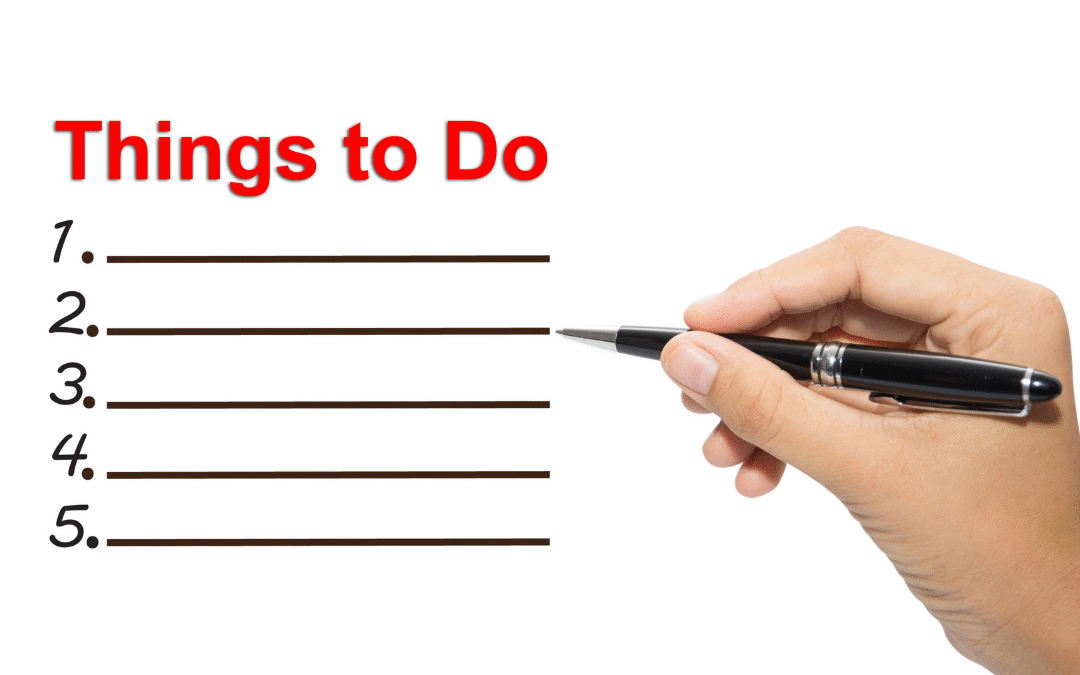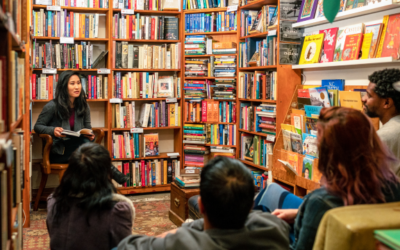Over the years, I’ve explored the ins and outs of publishing, and I know many of you are faced with the same dilemma: traditional publishing or self-publishing? Both paths offer unique opportunities and challenges, and finding the right one for you depends on your goals as a writer. In this post, I’ll share insights on each option, helping you decide which route aligns best with your vision for your work. Let’s dive in and discover the right fit for your publishing journey!
Key Takeaways:
- Traditional publishing offers wider distribution and professional support, including editing, marketing, and cover design, but may require a lengthy approval process.
- Self-publishing gives authors complete control over their work, including creative decisions and pricing, but comes with the responsibility of managing all aspects of publishing and promotion.
- Your choice between traditional and self-publishing should align with your goals as an author, including your desired level of control, potential earnings, and how much time you can dedicate to the publishing process.
The Allure of Traditional Publishing
Traditional publishing often beckons authors with promises of legitimacy, substantial distribution, and editorial expertise. The allure here is not just about having a book on the shelves but the full backing of a dedicated team that believes in your story. This path typically offers more significant financial advances, access to established publicity channels, and an established brand that can elevate your work in a crowded market.
Gatekeepers and Their Role in Quality Control
In traditional publishing, gatekeepers like literary agents and editors play a vital role in maintaining quality. These professionals sift through countless manuscripts, selecting only the most compelling stories to represent. Their expertise ensures that published works meet industry standards, providing reassurance to both authors and readers that the material is well-crafted and worth their time.
The Prestige Factor: Why Some Authors Choose the Established Route
Choosing traditional publishing often comes down to the prestige associated with major publishing houses. For many authors, being published by an established name carries significant weight, offering a sense of validation that self-publishing may not provide. Traditional publishers have built reputations over decades, and readers may be more inclined to trust and purchase books bearing their imprints.
This prestige can open doors beyond just a book’s initial release. Authors may receive invitations to literary festivals, speaking engagements, and exclusive networking opportunities with other industry professionals. Furthermore, winning literary awards and recognitions like the Pulitzer Prize or Booker Prize, which are often influenced by traditional publishers, can elevate an author’s profile and career longevity significantly. With traditional publishing, you’re not just gaining a book deal; you’re entering a realm filled with potential for growth and recognition in your literary journey.
The Freedom of Self-Publishing
Deciding to self-publish grants you a level of independence that traditional publishing simply can’t offer. You maintain complete control over your manuscript’s final form, from the title to the cover design and marketing strategies. This autonomy allows for a more personal connection to your work, empowering you to see your artistic vision fully realized and shared with readers without compromise.
Creative Control: Owning Your Voice and Vision
Self-publishing places your creative vision front and center. You can choose your narrative style, cover art, and even the pacing of your release, ensuring that the final product truly reflects your voice. This freedom is liberating for many authors who demand artistic integrity and wish to connect with readers on their terms.
Financial Aspects: Weighing Royalties Against Upfront Costs
Financial considerations are a key factor in the self-publishing vs. traditional publishing debate. While traditional publishing provides an advance and typically takes a more significant cut of your royalties, self-publishing allows you to keep a more substantial percentage of the profits from your book sales. However, you may face upfront costs such as editing, cover design, and marketing expenses, which can range from a few hundred to several thousand dollars.
For example, a self-published author can earn between 60% to 70% royalties on each book sale, compared to traditional publishing, where royalties can fall between 10% to 15%. If you sell 1,000 copies of your book priced at $10, the traditional author might earn $1,500, while the self-published author could take home $6,000. This financial difference highlights the potential benefits of self-publishing, but the initial investment in quality services is necessary to maximize your earnings and ensure your book’s professionalism in a competitive market.
Navigating the Submission Process
Submitting your manuscript is a vital part of the traditional publishing world. This process can feel daunting, but being prepared can make a significant difference. It typically involves researching potential agents, tailoring your submission to their preferences, and understanding the timeline for responses. Each agent may have specific requirements, so creating a well-organized checklist can streamline your efforts and increase your chances of success.
Query Letters and Pitching Agents: The Traditional Pathway
Query letters serve as your first impression to literary agents and are a pivotal step in the traditional publishing route. You’ll want to craft a compelling letter that includes a brief synopsis of your book, your writing background, and why your work would resonate with their agency. Personalized queries tailored to each agent can greatly enhance your chances, showing that you’ve done your homework and understand their interests.
Platforms and Tools: How Self-Publishers Get Their Work Out
Self-publishers have a variety of platforms and tools at their disposal to share their work with readers. Websites like Amazon Kindle Direct Publishing, IngramSpark, and Smashwords facilitate easy distribution, while services like Canva can help create enticing cover designs. Social media platforms such as Instagram and Facebook enable authors to connect directly with their audience, build a following, and market their books effectively.
Utilizing these platforms means you can publish your work at your own pace and reach global audiences without the need for a traditional distributor. For example, KDP allows you to set your pricing and choose whether to enroll in programs like Kindle Unlimited, maximizing your earning potential. Additionally, services like BookFunnel help you manage free promotions and distribute review copies, further enhancing your visibility and sales opportunities in a competitive market.
Marketing Mastery: Who Takes the Lead?
Navigating the marketing landscape can feel overwhelming, especially when trying to determine who takes charge. In the traditional publishing model, the publisher typically leads marketing efforts, leveraging their established networks and resources. Conversely, self-published authors take a hands-on approach, crafting their own marketing strategies to connect directly with readers.
The Publisher’s Reach: Accessing Established Distribution Channels
Traditional publishers often boast extensive distribution channels that can put your book on the shelves of bookstores and libraries nationwide. Their established relationships with distributors mean your book benefits from greater visibility and access to larger audiences right out of the gate. Many authors find this reach invaluable, as it allows for a smoother entry into the market without the need for deep personal connections.
The Self-Publisher’s Challenge: DIY Marketing Strategies that Work
Self-published authors face the challenge of navigating marketing on their own, but this can be an opportunity for creativity and innovation. Success hinges on using social media effectively, engaging with readers through platforms like Instagram and Twitter, and building an email list to maintain direct communication. Authors often utilize blog tours, virtual events, and collaborations with influencers to amplify their reach.
Developing a unique marketing strategy is necessary for self-publishers. Targeting niche audiences through tailored campaigns can yield impressive results. For example, an author focused on historical fiction might partner with history-focused communities or podcasts, engaging directly where potential readers gather. Investing time in building an authentic online presence allows you to connect with readers personally, fostering loyalty and encouraging word-of-mouth promotion. I’ve discovered that a well-planned social media campaign, alongside reader engagement activities like giveaways or Q&A sessions, can significantly boost visibility and sales without a large budget. Through persistence and creativity, self-publishers can effectively carve out their space in the crowded literary market.
Personal Circumstances and Author Goals
Your individual situation and aspirations significantly influence the decision between traditional and self-publishing. Factors such as available time, financial resources, and career objectives play a key role in shaping your publishing path. Are you seeking quicker publication to share your story immediately, or are you willing to invest time into the more lengthy traditional route for potential larger gains? Clarifying your goals will help align your publishing strategy with your personal circumstances.
Assessing Your Timeline: Immediate vs. Long-term Goals
Considering your timeline is vital in determining the right publishing route. If you have immediate goals, such as promoting a timely message or capitalizing on a relevant trend, self-publishing may be more suitable. On the other hand, if your ambitions are long-term—like building a sustainable author brand or seeking wide distribution—traditional publishing could be the more strategic choice. Evaluating what you want to achieve within a particular timeframe can clarify your decision-making process.
Understanding Your Audience: Where Do They Prefer to Buy?
Recognizing your target audience’s purchasing habits is vital in deciding your publishing route. Readers may have distinct preferences for where they buy their books—some might favor local bookstores, while others prefer online platforms like Amazon. Researching your audience demographics can provide valuable insights; for instance, younger readers may be more inclined to purchase e-books, while older generations might prefer print. Understanding these preferences can inform not only your publishing choice but also your marketing strategy.
For example, if your reader base tends to download books from platforms like Kindle or Apple Books, self-publishing could yield faster returns because you can control the pricing and promotional strategies directly. Conversely, if your audience revels in the experience of browsing through bookstores, traditional publishing might offer the credibility and reach necessary to connect with those readers. Consider how you can leverage this knowledge to position your book effectively in the market, whether through strategic partnerships or tailored marketing efforts.
Summing up
On the whole, choosing between traditional publishing and self-publishing comes down to your personal goals and preferences. I understand that each route offers unique advantages and challenges. If you value creative control and hands-on involvement, self-publishing might be the way for you. On the other hand, if you’d like the support of a professional team and the prestige of a well-known publisher, traditional publishing could be a better fit. Ultimately, it’s about what aligns best with your vision as a writer.
FAQ
Q: What are the main differences between traditional publishing and self-publishing?
A: Traditional publishing involves submitting your manuscript to a publishing house, where they handle the editing, design, distribution, and marketing. In contrast, self-publishing puts the entire process in the author’s hands. This means you will be responsible for editing, cover design, formatting, and marketing your book. While traditional publishing often offers wider distribution and established credibility, self-publishing allows for greater creative control and potential higher royalties per sale.
Q: What are the financial implications of choosing self-publishing over traditional publishing?
A: In traditional publishing, authors typically receive an advance and royalties on sales, which may be lower compared to self-publishing. While traditional publishers invest in the book’s production, self-publishing requires authors to cover expenses upfront for services like editing, design, and marketing. However, once published, self-published authors can earn a higher percentage of royalties, sometimes up to 70%, compared to the 10-15% offered by traditional publishers. The decision often comes down to upfront investment versus potential long-term revenue.
Q: What factors should authors consider when deciding between traditional and self-publishing?
A: Authors should consider their goals, timeline, and willingness to take on various responsibilities. If an author values extensive marketing support and prefers a hands-off approach to publishing, traditional publishing may be the better route. On the other hand, if they desire creative freedom, faster time to market, and the ability to maintain greater control over their work, self-publishing might be more suitable. Aspiring authors should also reflect on their target audience and genre, as some markets might favor one approach over the other.







